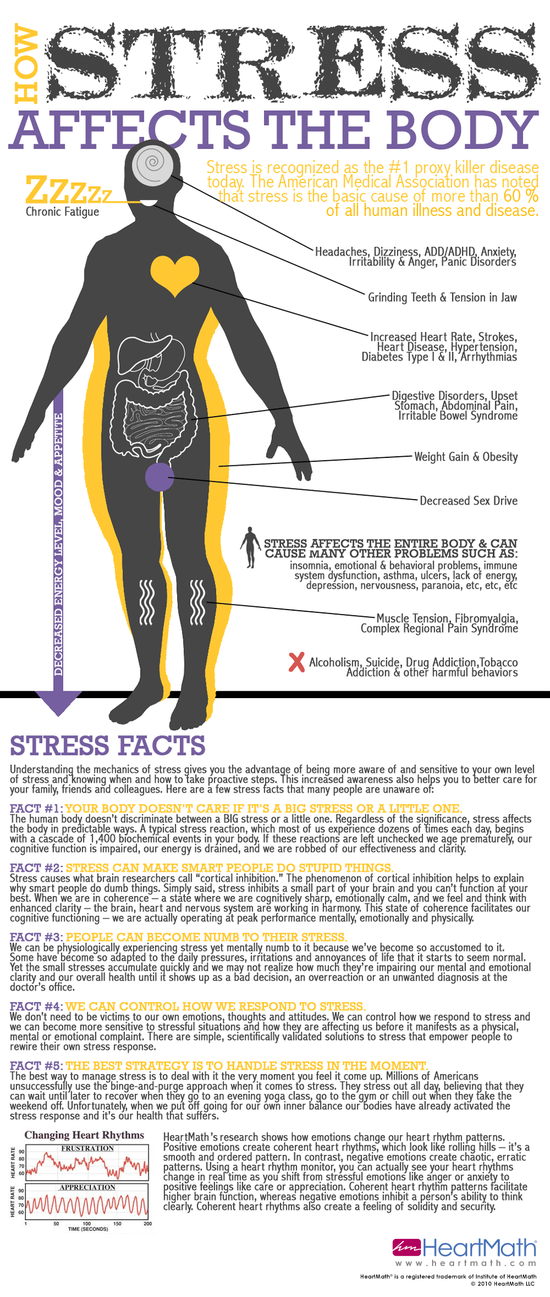
It is widely known and supported by research that stress is a key contributor to disease and illness; therefore, the management of stress is essential to your optimal health! Stress, simply, is a human survival mechanism and is a normal and healthy reaction. Through a complex interaction of hormones, it acts to protect us from danger, be it internal (I've got a cold, again!) or external (That car is coming right at me at 80km/hr!).

Photo courtesy of Michal Marcol/freedigitalphotos.net
In the time of our ancestors, the stress response was integral to survival -- they were met with a single "fight or flight" episode and acted accordingly. This episode would be dealt with immediately, within 90 seconds. In today's world, life is not so simple. We are bombarded with many smaller, yet chronic, stresses on a daily basis -- strict deadlines, lack of sleep, overwhelming chemical stresses due to obesity and fast food intake, etc. Even though our society has advanced in many aspects, our bodies have not adjusted significantly to account for the changes in our stressors.
Humans turn on the stress response for purely psychological reasons, and we are doing it nonstop. We are bombarding our bodies with stress to such a point that the stress response becomes more damaging than the stressor in the first place. When these hormones are present in our system, our body acts "stressed" and turns off other important systems, such as our reproductive system and our immune system, in order to preserve the energy for the stress response. In the simplest terms, stress disrupts our body's ability to heal and repair itself.
The following are some significant research findings in the areas of stress:
- The arteries of stressed people had more plaque than the arteries of non-stressed people.
As a chiropractor, I am faced every day with patients who are showing significant signs of stress physically, emotionally and chemically. Chiropractic is one way to alter the way your body handles stress. I recommend meditation and relaxation techniques for the majority of these patients as well. We need to begin to value stress reduction in order to promote a healthy lifestyle and longevity. Now is the time to take significant action steps to improve your future and live a longer, healthier and happier life!
For more by Shaila Callaghan, click here.
For more on stress, click here.
Image courtesy of HeartMath
